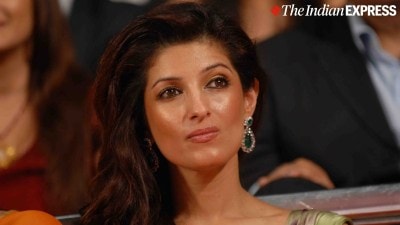The troika speaks
President Boris Yeltsin hosted German Chancellor Helmut Kohl and French President Jacques Chirac for an informal summit on European integrat...

President Boris Yeltsin hosted German Chancellor Helmut Kohl and French President Jacques Chirac for an informal summit on European integration at a country residence near Moscow. The troika summit 8212; the first of its kind 8212; was aimed at boosting Russia8217;s integration with Europe, with security issues high on the agenda.
However, it was overshadowed by Yeltsin8217;s dramatic dismissal of the government this week, which threw Russia into political turmoil. The three leaders met in bright sunshine at the Bor residence, in a pine forest south of Moscow.
The original plan was to hold the summit in Yeltsin8217;s home region of Yekaterinburg in the Urals, but it was switched to Moscow at the last minute when the president8217;s doctors advised him against long flights following his recent illness.
The media spotlight was firmly on Yeltsin, who appeared to be in good form, vigorously shaking Kohl8217;s hand and beaming for the cameras. He returned to work in the Kremlin last Friday, after a week off due to a heavy chestinfection.
It was Yeltsin8217;s first international meeting since his latest illness, and came amid renewed speculation about his health. He arrived at Bor by helicopter, but Chirac and Kohl had stayed overnight at the residence.
Yeltsin has suffered a series of heavy colds since his multiple heart bypass operation in November 1996, and has spent long periods away from the Kremlin, recovering at rest homes.
Opening the meeting, Yeltsin, 67, made a gaffe reminiscent of the faux pas which baffled observers during his trip to Sweden in December. quot;I declare this press conference open,quot; Yeltsin said, instead of announcing the opening of the summit.
Kremlin spokesman Sergei Yastrzhembsky tactfully reminded him that he was supposed to open the talks, and that the press conference was scheduled for later, Yeltsin nevertheless told reporters: quot;I am listening to your questions.quot;
The meeting then got underway, however, after Yeltsin announced an agenda covering quot;serious issues of international politics, Europeansecurity and our troika 8212; the Paris-Bonn-Moscow axis,quot; which he described as powerful.
The leaders8217; discussions were also expected to touch on Russia8217;s latest political upheaval.
Immediately after returning to the Kremlin from his sickbed Monday, Yeltsin sacked Prime minister Viktor Chernomyrdin 8212; who had served him loyally for five years 8212; and his entire cabinet, in a sweeping gesture of presidential might. Bonn and Paris played down the upheaval, saying it was a domestic matter and stressing that the key issue was Yeltsin8217;s determination to push through economic reforms.
The summit agenda included Russia8217;s relations with the NATO, preparations for the next G-8 economic summit, the situation in Iraq, the Middle East and Caucasus, and a joint military Air transport project.
Besides the planned An-70 cargo plane, future troika projects include upgrading road and rail links between the three countries, the creation of a joint body for tackling disasters and space cooperation. The tension in Kosovomay also figure in the discussions.
Chirac8217;s spokeswoman Catherine Colonna said the summit would quot;reaffirm Russia8217;s place and role in Europe under the impulse of France and Germany, which are both countries driving European construction and share the same idea of what relations with Russia should be.quot;
AGENCE FRANCE PRESSE
The past and present puzzle
The idea was enlightened. After European union and a European single currency 8212; a European single history. Why shouldn8217;t tens of millions of French, German and Russian schoolchildren swap their narrow national textbooks for an agreed version of European history?
It wasn8217;t the size of the class that raised doubts but the number of teachers 8212; three of them: Helmut Kohl, Boris Yeltsin and Jacques Chirac, none of them sure whether they were teaching history or making it.
They did agree, however, that the three countries8217; historians should sit down and calmly settle a single Franco-German-Russian account of mutual invasion andempire-building which would satisfy parents and teachers in Volgograd, Dresden or Strasbourg.
But President Yeltsin seemed to be inhabiting another, Congress of Vienna world of sizeist great power politics in which the European Union had not been dreamt of. quot;There is only friendship and peace on the Continent and in greater Europe,quot; he rumbled. quot;And it8217;s greater Europe which will be, I8217;d say, the hegemony. Without Russia, Europe was a little small, but now it8217;s a mighty organism.quot; Yeltsin did not say hegemony of what, but it was clear that in his peaceful, multi-polar world, some poles were more equal than others. quot;With Russia, no greater organism exists than Europe. Everyone must know this, and remember.quot;
Chancellor Kohl seemed to have attended a different history course, one in which the EU had been invented and had 13 other members apart from France and Germany, and in which the US was an ally rather than a rival in a clash of civilizations. quot;Our meeting isn8217;t aimed against anyone,quot; he said.
quot;We8217;renot trying to make anyone anxious or jealous. President Jacques Chirac and I as chancellor of Germany are trying to reflect our responsibilities before the European Union.quot;
The history book aside, they were able to agree on a Franco-Russian-German university Yeltsin said this would be an actual building, his partners saw it as more of a concept.
The Observer News Service
- 01
- 02
- 03
- 04
- 05































